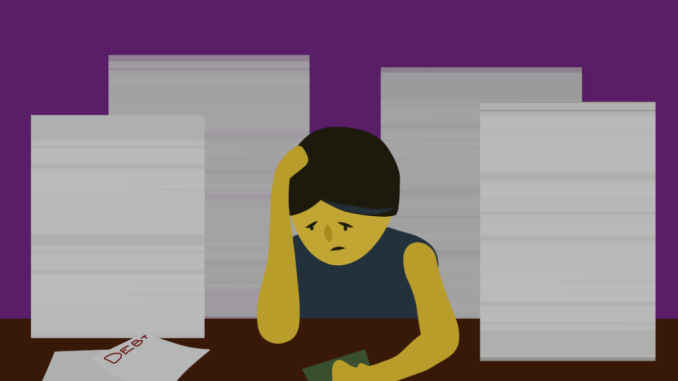
On Jan. 31, the $15 minimum wage went into effect for Pennsylvania Commonwealth employees, according to Gov. Wolf’s administration website.
This increase is not the first time Gov. Tom Wolf raised the minimum wage for commonwealth employees. In 2016, an executive order raised the minimum wage from $7.25 to $10.15 and in 2018 it was raised again to $12.
However, not all Pennsylvania residents will experience the minimum wage increase, and for non-commonwealth employees, the minimum wage will remain $7.25 per hour, Fox 43 reported.
In October 2021, Wolf stated that any company that receives state grants or tax breaks must pay employees $13.50 an hour. This incentive will change to $15 an hour beginning in 2024. However, this only applies to companies receiving state loans or tax breaks, York Daily Record reported.
Although commonwealth and many corporate employees are already earning more than the minimum wage, the wage increase should be extended to all Pennsylvania workers so they can also have livable wages.
Pennsylvania’s minimum wage last increased for all workers in 2009 from $6.55 to $7.25 an hour, as amended under the federal Fair Labor Standards Act, according to the Pennsylvania Department of Labor & Industry. For all workers to get a minimum wage increase, the state legislature would need to pass an amendment to the FLSA.
The federal minimum wage doesn’t seem to be rising soon because the Raise Wage Act, which would raise the minimum wage to $15 over four years, was rejected in Congress in March 2021, it’s up to states like Pennsylvania to increase their minimum wage to pay all employees a livable wage.
Roughly 62 percent of Americans say they favor raising the minimum wage to $15 an hour, according to an April 2021 survey from Pew Research Center.
Many support the wage increase because low-wage employees have faced many health and financial burdens during the COVID-19 pandemic, which has made the need for a livable wage more visible, USA Today reported.
The steep rise in inflation during the past year has affected the prices of food, gasoline and other essentials. However, many Pennsylvania workers still make $7.25 but are spending more on basic essentials.
Many people believe raising the minimum wage would hurt small businesses or cause people to lose their jobs because if minimum wage rises the demand for labor will decrease, but this isn’t true, said Michael Leeds, an economics professor.
“They say that a higher minimum wage is great if you still have a job, but many people will lose their jobs,” Leeds said. “In fact, there is no causal relationship between the increase in our minimum wage and unemployment rates.”
Because the cost of higher education has risen and the minimum wage hasn’t, it has become more difficult for students to cover costs. Part-time college students who work struggle completing their degrees, according to the Urban Institute, a nonprofit research organization.
If the minimum wage increased for all employees, college students would directly benefit from it, said Sophie Style, a sophomore political science major.
“A lot of college students do work minimum wage jobs and a lot of students do struggle financially with paying rent and having personal expenses,” Style said.
Pennsylvania has the second-highest average in-state tuition in the country. Residents attending in-state colleges and universities while living on campus would need to work approximately 119.6 hours per week to pay their way through a traditional four-year program, according to TextbookRush, an independent online bookstore.
It’s difficult going back and forth with classes and work everyday because it gives students like Arina Faktor less time to study.
“The increase would also decrease the amount of hours we would work,” Faktor, a sophomore international business major, said. “Currently I can afford at least 17-18 hours, if it could be reduced to 15 hours per week that would be beneficial for my mental health.”
It is not enough for the minimum wage to be raised for some Pennsylvania workers but not all. For non-commonwealth employees the minimum wage will remain at $7.25. All Pennsylvanians deserve the right to a livable wage, and the minimum wage must reflect that.


Be the first to comment